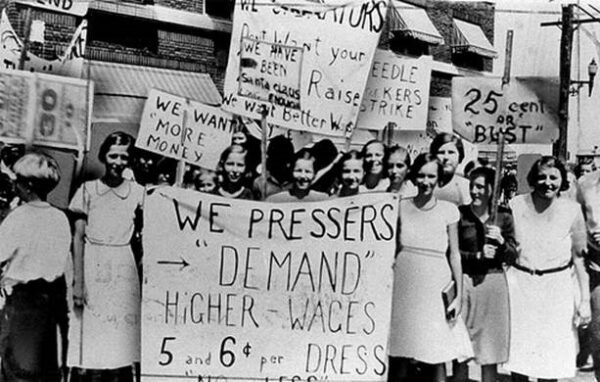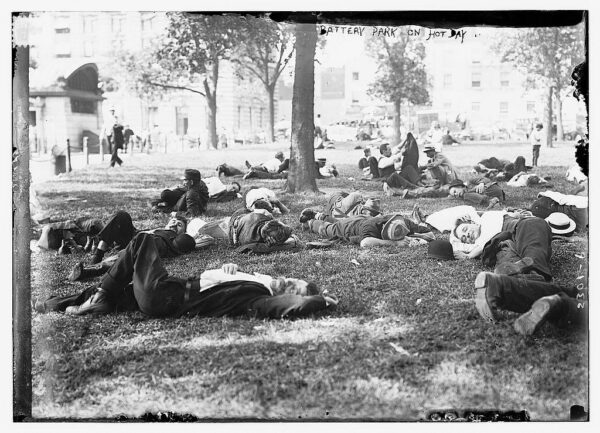Posts Tagged ‘new california labor laws’

WHAT IS YOUR LACTATION LOCATION?
San Francisco Workplace Ordinance – Directs Time and Space for Nursing Mothers San Francisco is the first California city to enact an ordinance requiring private employers to provide lactation breaks and rooms to employees who are nursing mothers. Effective January 1, 2018, all non-governmental employers under San Francisco’s “Lactation in the Workplace Ordinance” must provide […]

ASKING FOR JOB APPLICANT AGE IS A NO-NO
California’s Updated Guidelines for Hiring Interviews and Applications California employers must comply with increasingly complex anti-discrimination laws. See, New Transgender Rights in the Workplace (July, 2017), High Times in California (April, 2017), and Banning the Box in Los Angeles (March, 2017). To further aid management in determining a person’s job qualifications without violating the applicant’s […]

CAUTIONARY TALES EPISODE 2
Two Tow Companies Owe $4.8 Million In Unpaid Minimum Wages, Overtime The California Labor Commissioner has announced a $4,874,661 award against Irvine Auto Towing, Inc. and Yaco Investments, Inc. for multiple wage theft violations affecting 187 drivers, mechanics, and dispatchers. Following a formal administrative proceeding, a hearing officer found these two tow companies had generally paid a flat […]

EQUAL PAY FOR WOMEN
San Francisco Bars Employers Asking Applicants for Pay History Taking a cue from the California Equal Pay Act (2016), San Francisco’s Board of Supervisors has passed a city-wide “Parity in Pay Ordinance” promoting gender wage equality by restrictions on what an employer can ask a job applicant on his/her pay history. Effective July 1, 2018, […]

NEW NOTICE POSTING REQUIREMENTS FOR BARBERS AND COSMETOLOGISTS
CUTTING TO THE CHASE – New Workplace Posting Requirements for California’s Salon Industries, Effective July 1, 2017 Starting July 1, 2017, California’s Board of Barbering and Cosmetology (BBC) requires its licensees – including hair salons, nail salons, estheticians, and barbers — to post a special Labor Commissioner notice on applicable employment laws. The notice includes information […]

WORKERS DON’T LOSE THE SNOOZE
California Employers May Not Require “On-Call” Rest Breaks California businesses have a well-established duty to provide their employees a “net” ten-minute paid rest break for every four hours worked, or major fraction thereof (i.e., anything more than two hours of work). (“Net” here means the time an employee spends reaching and returning from his/her rest […]

LOCATION, LOCATION, LOCATION
Nine California Municipalities are Increasing Minimum Wage on July 1, 2017 As relayed in our December, 2016 blog Hot Off the Presses, no less than 23 local governments are now requiring minimum wage levels higher than the California standard. Nine municipalities are raising their rates effective July 1, 2017, with larger Emeryville employers the hardest hit. […]

GOVERNMENTAL MICROMANAGEMENT IN SAN JOSE
New “Opportunity to Work” Ordinance Effective March 13, 2017, the City of San Jose’s Opportunity to Work Ordinance requires employers with 36 or more employees to offer additional work hours to existing, qualified part-time employees before hiring new employees, including subcontractors and use of temporary staffing services. The ordinance does not cover employees that are […]

WHAT’S NEW IN 2017
A CLOSER LOOK AT UBER, LYFT DRIVERS California’s New Criminal Background Checks For Transportation Network Companies Effective January 1, 2017, AB 1289 (the Act) requires all transportation network companies (TNC) such as Uber and Lyft – businesses using an online-enabled platform to connect paying passengers with drivers using their personal vehicles – to conduct a […]

WHAT’S NEW IN 2017
Employers Must Notify All California Workers if Income Tax Credit Congress created the Federal Earned Income Tax Credit (EITC) in 1975 to incentivize low-income workers to seek employment rather than welfare. In 2015, California authorized the “Cal EITC” for the same purposes. The federal and California EITC programs each reduce the amount of tax that […]
